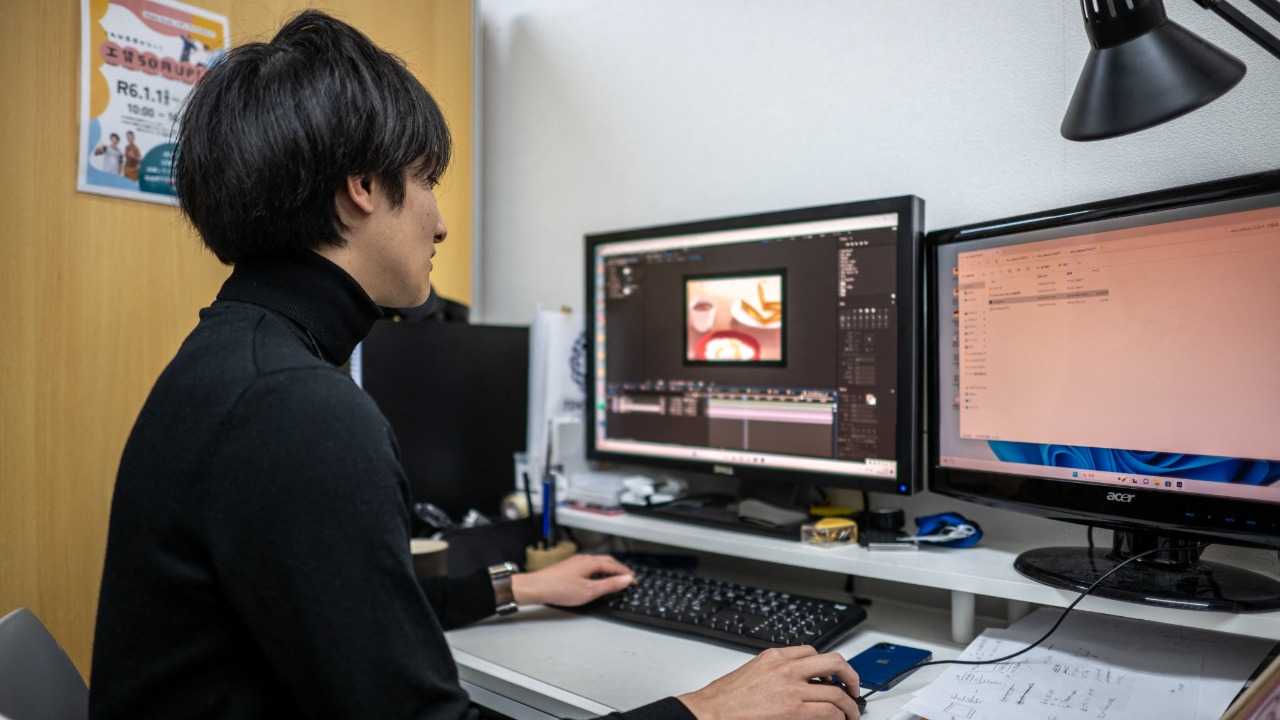In Japan, "Shake Hands," an animation studio tailored to autistic talents
Shoko Sakuma, a 39-year-old autistic woman, felt lost in a traditional work setting. But now, she is delighted to be able to pursue her childhood passion for drawing in a specially adapted animation studio.
Also having attention deficit disorder, she struggled to concentrate in her previous job in accounting: she got tangled up in numbers, lost important objects, and was obsessed with small details.
At times, her sense of failure depressed her so much that she wouldn't leave her home, also developing bipolar disorder.
But today, Shoko works at the "Shake Hands" animation studio in Kyoto, where she adds digital effects to key images in a partitioned office, a spatial configuration that helps her focus.
"With my personality, I can only move on to the next step if I understand every detail perfectly," explains Ms. Sakuma to AFP.
"The instructors here accept me as I am and teach me the work very gently," she appreciates. "I feel comfortable here. I'm having fun."
Created a year ago, "Shake Hands" is one of the first Japanese animation studios adapted for autistic employees.
"An animated film is based on what is called a time sheet, a plan that commands every movement of the characters," explains Yuki Kawai, a 28-year-old studio trainer.
"There are no abstract rules when it comes to animation, which is why it's easy to understand for people like us," he says.
He himself was diagnosed with attention deficit disorder during a disastrous first professional experience in sales after finishing his studies in art and design.
"Often I couldn't get up in the morning, or arrive at the office on time," he recalls. "I couldn't handle phone calls because I often got people's names wrong."
For people with autism spectrum disorder (ASD), such a traumatic experience can trigger mental health problems, warns Yuji Umenaga, a professor at Waseda University in Tokyo specializing in the field.
"Many people who come to see me have symptoms of depression," he explains to AFP. "Antidepressants are not effective for them, because it's the symptoms of ASD that make relationships with bosses and colleagues difficult."
"Shake Hands" has already created animation sequences for several big-budget films, and a Malaysian company has entrusted it with the production of a promotional animated film.
Upbeat background music sets the pace for the work of the studio's small team of employees, who receive a symbolic salary.
"In a quiet environment, some people are sensitive to the fact that others are chatting and think they might be the subject of their conversations," justifies Momoka Tsuji, a staff member.
Those who are too absorbed in their task, which is a common problem, are reminded to take a break every hour. Studio employees can start and end their workday whenever they want, even late at night.
"Some of our colleagues don't feel comfortable having direct conversations, so we communicate through a chat function on the intranet," explains Tomoya Sawada, 34, the studio director.
In Japan, developmental disorders have long been considered simply a matter of personality, but scientific studies have since the early 2000s helped raise awareness in society, better support these individuals from childhood, and increase the number of adapted businesses in the country.
Professor Umenaga hopes that the example of "Shake Hands" will be followed in Japan, like Exceptional Minds, a Californian animation studio founded in 2011 that trains autistic students.
"In order to make their wonderful potential shine, we must provide them with an adequate environment, from school to vocational training," argues Mr. Umenaga.
